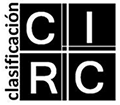Correlación modal español-latín en los "Modi Loquendi Latino & Hispano Sermone" de Pedro de Madariaga
DOI:
https://doi.org/10.18002/ehf.v0i10.4346Abstract
Los Modi Loquendi Latino & Hispano sermone constituyen, en el panorama de las ideas lingüísticas del siglo XVI, un tratado catalogable hoy de investigación en el terreno de la Lingüística Aplicada. Preocupado por los problemas que el proceso de la traducción -directa e inversa- entre el latín y el español suscitaba en la época, Madariaga va analizando, en esta obra, uno a uno los desajustes modales existentes entre ambas lenguas. Su exposición se convierte, así, en una aportación a la práctica de la traducción, con una clara finalidad didáctica, formulada expresamente por el autor. A la hora de enfrentarse a tal proyecto, Madariaga ha de optar por una de las dos posibilidades que se le ofrecían: por la de enfocar el proceso a partir del latín, considerando a éste como lengua original, o la de hacerlo a partir del castellano. El vizcaíno optará por la segunda, convencido como está de la innegable importancia de la lengua nativa, de asimilación inconsciente, como vehículo para la enseñanza lingüística. Los Modi se constituyen, de esta forma, en un tratado sobre la práctica de la traducción, construido desde la perspectiva de un defensor de la dignidad del romance.
The Modi Loquendi Latino & Hispano sermone, as far as the world of linguistic ideas in the 16th century is concerned, constitute a field of research within which we consider Applied Linguistics to be today.
Interested in the topic of the problems poned by the process of translation -both from and finto the native tongue- between Latin and Spanish at the time, Madariaga analyses in this work, the modal mismatches between both tongues. The exposition is, in this sense, a contribution to the praxis of translation, with a clear didactic aim, openly expressed as such by the author. When facing the task of developing that project, Madariaga has to choose between: either approaching the process from the Latin, taking this as the source language, or doing it from the Spanish. The Biscayan decides on the second, as he is convinced of the undeniable importance of the native tongue, of unconscious assimilation, as vehicle for the teaching of language. The Modi are, in this sense, a treatise on the praxis of translation, built from the point of view of a defender of the dignity of the vernacular.
Downloads
Métricas alternativas
Downloads
Published
How to Cite
Issue
Section
License
Copyright (c) 1988 Marina A. Maquieira Rodríguez

This work is licensed under a Creative Commons Attribution-NonCommercial-ShareAlike 4.0 International License.
Los autores o autoras que publican en esta revista están de acuerdo con los siguientes términos:
- Los autores o autoras conservan los derechos de autoría de su trabajo y ceden de forma no exclusiva los derechos de explotación (reproducción, distribución, comunicación pública, transformación) a la Universidad de León, por lo que pueden establecer, por separado, acuerdos adicionales para la distribución no exclusiva de la versión de la obra publicada en la revista (por ejemplo, alojarlo en un repositorio institucional o publicarlo en un libro), con un reconocimiento de su publicación inicial en esta revista.
- Este trabajo se encuentra bajo la Creative Commons Attribution-NonCommercial-ShareAlike 4.0 International License. Puede consultarse desde aquí la versión informativa y el texto legal de la licencia.
- Se permite y se anima a los autores y autoras a difundir electrónicamente las versiones pre-print (versión antes de ser evaluada) y/o post-print (versión evaluada y aceptada para su publicación) de sus obras antes de su publicación, ya que favorece su circulación y difusión más temprana y con ello un posible aumento en su citación y alcance entre la comunidad académica.











